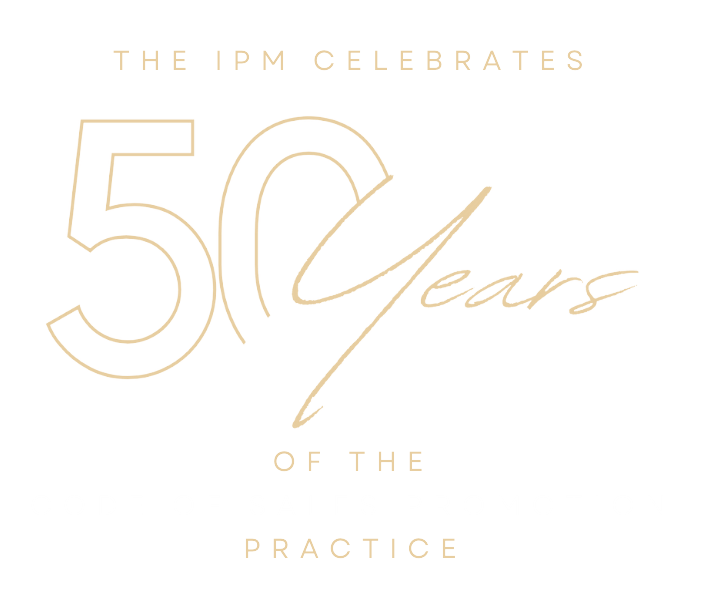We celebrate the fiftieth year of the Code of Sales Promotion Practice—a document that arguably forms the DNA of the IPM—examining its central role in the promotional marketing industry alongside the challenges and opportunities posed by digital advancements such as artificial intelligence. The Committee of Advertising Practice (CAP) Non-broadcast Code plays a crucial role in the self-regulatory system that governs marketing communications across the UK. Through the insights of IPM luminaries, such as Lord Black of Brentwood, and Manny Roberts, Regulatory Affairs Manager, we gain a deeper understanding of promotional marketing self-regulation.


We celebrate the fiftieth year of the Code of Sales Promotion Practice—a document that arguably forms the DNA of the IPM—examining its central role in the promotional marketing industry alongside the challenges and opportunities posed by digital advancements such as artificial intelligence.
The Committee of Advertising Practice (CAP) Non-broadcast Code plays a crucial role in the self-regulatory system that governs marketing communications across the UK. Through the insights of IPM luminaries, such as Lord Black of Brentwood, and Manny Roberts, Regulatory Affairs Manager, we gain a deeper understanding of promotional marketing self-regulation.

The First Code of Sales Promotion Practice was established in 1974 to ensure that the mechanics of marketing promotions were covered under the governance of self-regulation. Written by CAP and regulated by the ASA, Section 8 of the Non-broadcast Code serves as the bedrock for all non-broadcast advertisements, sales promotions, and direct marketing. Deeply ingrained in the IPM’s DNA, it serves to provide clear guidance on the running of promotions in the United Kingdom (UK). As a key voice on the CAP committee, the IPM plays an instrumental role in representing the promotional sector and shaping the self-regulatory architecture that supports the health and integrity of the wider advertising industry. Marking this significant chapter in the history of the IPM and the CAP Code, Graham Temple, a member of the IPM Board and former Chairman, reflects on this milestone with Lord Black of Brentwood.
The First Code of Sales Promotion Practice was established in 1974 to ensure that the mechanics of marketing promotions were covered under the governance of self-regulation. Written by CAP and regulated by the ASA, Section 8 of the Non-broadcast Code serves as the bedrock for all non-broadcast advertisements, sales promotions, and direct marketing. Deeply ingrained in the IPM’s DNA, it serves to provide clear guidance on the running of promotions in the United Kingdom (UK). As a key voice on the CAP committee, the IPM plays an instrumental role in representing the promotional sector and shaping the self-regulatory architecture that supports the health and integrity of the wider advertising industry. Marking this significant chapter in the history of the IPM and the CAP Code, Graham Temple, a member of the IPM Board and former Chairman, reflects on this milestone with Lord Black of Brentwood.


News
Pringles × Super Mario: The Boss Level Brand Partnership That Won the IPM Grand Prix
Brand Culture, last year’s IPM Grand Prix winners, reveal how Pringles × Super Mario turned a brand partnership into shelf-side excitement, from the Mystery Flavour “question block” idea to collectable character cans.
HFSS Advertising Regulations: What Marketers Need to Know
HFSS regulations have entered a new phase. This article breaks down what the latest rules mean for marketers, where the key risks sit, and how IPM tools and legal support can help.
Promotions Wrapped! Playing Back the Biggest Trends of 2025
From Superman on The Shard to ‘AI slop’, see what cut through in 2025...
News
Pringles × Super Mario: The Boss Level Brand Partnership That Won the IPM Grand Prix
Brand Culture, last year’s IPM Grand Prix winners, reveal how Pringles × Super Mario turned a brand partnership into shelf-side excitement, from the Mystery Flavour “question block” idea to collectable character cans.
HFSS Advertising Regulations: What Marketers Need to Know
HFSS regulations have entered a new phase. This article breaks down what the latest rules mean for marketers, where the key risks sit, and how IPM tools and legal support can help.
Promotions Wrapped! Playing Back the Biggest Trends of 2025
From Superman on The Shard to ‘AI slop’, see what cut through in 2025...






